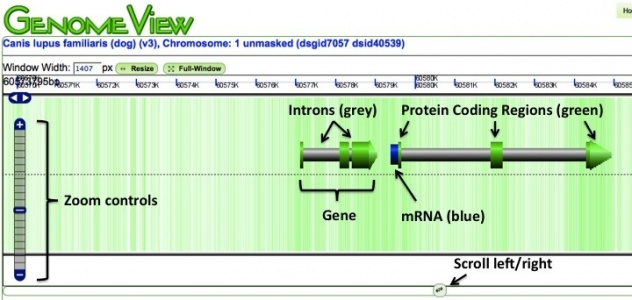Required Background Information: Difference between revisions
Jump to navigation
Jump to search
mNo edit summary |
mNo edit summary |
||
| (13 intermediate revisions by 2 users not shown) | |||
| Line 7: | Line 7: | ||
'''DNA'''<br> | '''DNA'''<br> | ||
*What is DNA | *What is DNA, what does it do, and how does it do it?<br> | ||
'''Genes'''<br> | '''Genes'''<br> | ||
| Line 14: | Line 13: | ||
*What are genes and what do they do? | *What are genes and what do they do? | ||
*How do genes work? | *How do genes work? | ||
'''Introns and Exons''' | |||
*What are introns? | |||
*What are exons? | |||
*What is the difference between them? | |||
*How do they related to genes? | |||
'''RNA''' | |||
*What is RNA and what does it do? | |||
*How does RNA relate to genes?<br> | |||
*What are different kinds of RNA and what are their roles in protein synthesis? | |||
- [http://en.wikipedia.org/wiki/Ribosomal_RNAhttp://en.wikipedia.org/wiki/Messenger_RNA mRNA], [http://en.wikipedia.org/wiki/Transfer_RNA tRNA], and [http://en.wikipedia.org/wiki/Ribosomal_RNA rRNA] | |||
'''Proteins'''<br> | '''Proteins'''<br> | ||
*What are proteins and what do they do? | *What are proteins and what do they do? | ||
'''Transcription and Translation''' | |||
*What is transcription? | |||
*What is translation? | |||
*How are they similar and how are they different? | |||
'''Central Dogma of Molecular Biology''' | |||
*What is the central dogma of molecular biology? How does it related to DNA, RNA, protein, transcription and translation? | |||
'''Mutations''' | '''Mutations''' | ||
*What are the different types of mutations? | *What are the different types of mutations? | ||
'''Evolution''' | |||
*What is evolution? | |||
'''Homology''' | |||
*What is homology? | |||
*What does it mean if two genes are homologous? | |||
== CoGe<br> == | == CoGe<br> == | ||
| Line 29: | Line 62: | ||
*What can CoGe do and why do we need it? | *What can CoGe do and why do we need it? | ||
'''Understanding CoGe's interface''' | '''Understanding the basics of the CoGe's interface''' <br> | ||
[[OrganismView]] ([http://genomevolution.org/CoGe/OrganismView.pl quicklink]) | |||
- lets you search for genomes | |||
[[CoGeBlast]] ([http://genomevolution.org/CoGe/CoGeBlast.pl quicklink]) | |||
- a program that compares entire genomes and identifies similar segments of DNA | |||
[[GenomeView|GenomeView]] | |||
- a tool that visualizes genomes, enabling the user to get close up views and compare multiple genomes | |||
[[Image:Background genoview.jpg|thumb|center|632x305px]] | |||
== See Also<br> == | |||
Next Lecture: [[Visually comparing bacteria and mammal genomes|Visually Comparing Genomes]]<br> | |||
All Lectures: [[Tutorial for High School Students]]<br> | |||
Latest revision as of 19:05, 21 June 2010
Objective
The objectives of this lecture series are to familiarize high school students with the CoGe program and to teach them fundamental ideas about comparative genomics.
Basic genetic ideas required
DNA
- What is DNA, what does it do, and how does it do it?
Genes
- What are genes and what do they do?
- How do genes work?
Introns and Exons
- What are introns?
- What are exons?
- What is the difference between them?
- How do they related to genes?
RNA
- What is RNA and what does it do?
- How does RNA relate to genes?
- What are different kinds of RNA and what are their roles in protein synthesis?
Proteins
- What are proteins and what do they do?
Transcription and Translation
- What is transcription?
- What is translation?
- How are they similar and how are they different?
Central Dogma of Molecular Biology
- What is the central dogma of molecular biology? How does it related to DNA, RNA, protein, transcription and translation?
Mutations
- What are the different types of mutations?
Evolution
- What is evolution?
Homology
- What is homology?
- What does it mean if two genes are homologous?
CoGe
Overview
- What can CoGe do and why do we need it?
Understanding the basics of the CoGe's interface
- lets you search for genomes
- a program that compares entire genomes and identifies similar segments of DNA
- a tool that visualizes genomes, enabling the user to get close up views and compare multiple genomes

See Also
Next Lecture: Visually Comparing Genomes
All Lectures: Tutorial for High School Students